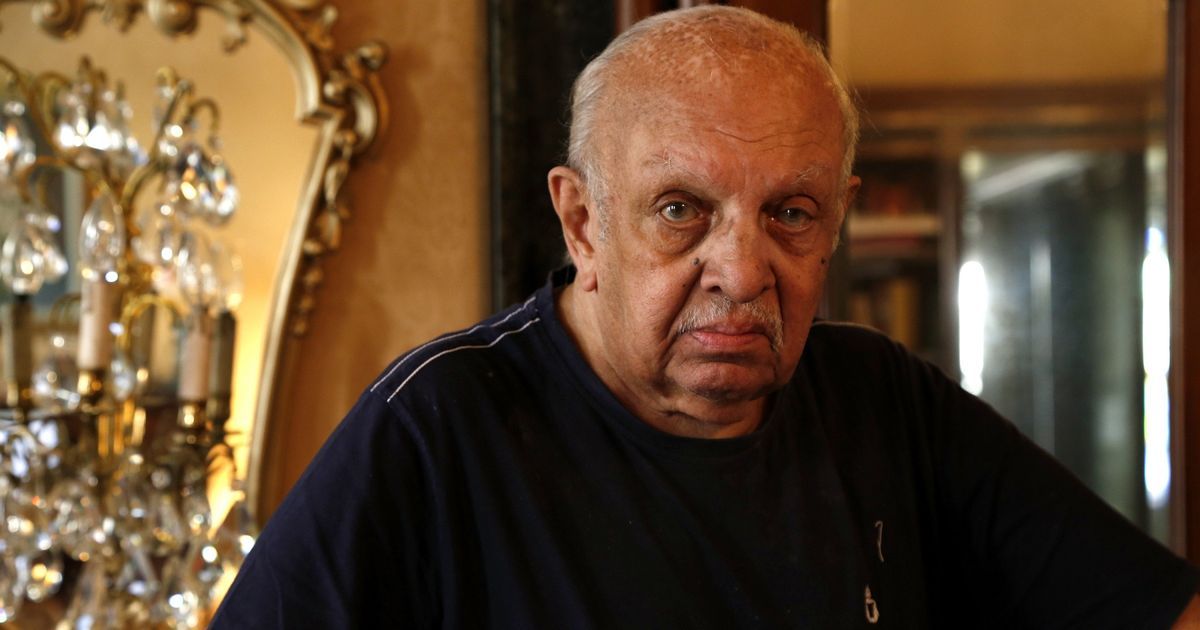A Legend Written With Music – Vanraj Bhatia
Vanraj Bhatia is preeminent among the handful of Indian musicians who have studied Western classical music in depth and have then successfully mixed that knowledge with an understanding of Hindustani classical music. His studies and the resulting scholarships and awards gave him a more substantial and sustained exposure to Western musical thought than perhaps any other Indian composer.

Bhatia studied at the Royal Academy of Music in London and the Paris Conservatory after graduating from Elphinstone College in Mumbai. In 1960, he was appointed as Reader in Western musicology at the University of Delhi, but the contradictions and limitations inherent in such an appointment proved unsatisfactory. He spent the majority of his career composing music for all possible Indian media. Indian ears first heard the results of Bhatia’s combined expertise in advertising jingles (Shakti Silk Mills and Liril soap to name two out of the thousands he has composed).
Advertising brought Bhatia into contact with filmmaker ShyamBenegal, who recruited the composer to produce the background soundtracks for many of his best-known films, Ankur (1974), Manthan (1976), Bhumika (1977) and Junoon (1978), and for his later films, Mandi (1983) and Trikal (1985). Bhatia also provided the music for Kundan Shah’s JaaneBhi Do Yaaro (1983).
Thereafter, Bhatia moved to television, where he created the unforgettable opening of Doordarshan’s first soap, Khandan, and also scored the music for GovindNihalani’s made-for-television film Tamas, work that earned him a National Film Award for Best Music Direction in 1988. Bhatia collaborated again with Benegal for the television series Bharat EkKhoj in 1988.
Much of Bhatia’s later career has been devoted to developing an operatic form that combines Indian and Western musical styles. In 2012, Bhatia was awarded a Padma Shri.
How did you get into Western classical music?
It is a strange story. I was brought up on Indian classical music at New Era School. I knew all the ragas. I had a teacher, one Mr Kulkarni, who died in 1942. Singapore had fallen [to Japan in 1942] and several Chinese people fled to Mumbai. One of them was Miss Yeoh, who taught us Western classical music at the school for three months. I had never heard Johann Strauss’s The Blue Danube. It fascinated me, and I started taking lessons.
The teacher wasn’t very good. She used to call Strauss’s Die Fledermaus, La Boheme. I bought a record of the opera and I listened to it every single day but could not find the song. La Boheme is, of course, fabulous, and I have seen it about eight times since.
I also heard Tchaikovsky’s Piano Concert No. 1 at the home of a friend, JehangirReadymoney. I said, that does it, I cannot do anything else.
I studied with every music teacher in Bombay, including four years with ManikBhagat, a paediatrician and a fine music teacher. He made me realise that I could never be a pianist, so he took me through the entire gamut of Western piano music in four years. I could not play a single piece properly, but I knew them all by heart. By the time I went to London to study, I knew all of Brahms, Chopin, Beethoven, Schubert and Mozart.
Family Opposition
My father was a businessman, he sold cloth. My whole caste [the Bhatias] was opposed to it¸ they wanted to burn my piano.
burn my piano. This was the time of socialism and the Gandhian movement. My cousin’s father-in-law used to say that if you send him to learn music, he will be selling chana at Chowpatty after he comes back.
My father was in favour of my learning. He told me that he would pay for my education in England for six months, and if I didn’t get a scholarship at the end of it, I would have to come back. Fortunately, I got many scholarships, including a Rockefeller Fellowship. I also studied in Paris, where I never went to a single show or a restaurant because I spent three hours a day on learning good harmony.
Composing Jingles
I started doing jingles in 1954. I must have done at least 6,000 jingles. There is not a single musician with whom I have not worked. I worked with Sharon Prabhakar and Kavita Krishnamurthy, Vinod Rathod, Udit Narayan.
Viju Shah came to learn from me. The first thing I took out was a page from Stravinsky’s The Rite of Spring. The next thing I know, he has used the tune in his own music.
I had come back to Bombay penniless. DurgaKhote told me, I am doing an advertisement for Shakti Silk Mills, would I do the music? In those years, jingles used to be three minutes long because they were on the other side of a three-minute record. These jingles would play first on the radio and then in the theatres.
When ShyamBenegal heard the jingle, he started giving me work. We used to record at Bombay Lab, Film Centre and Famous Studio. I used to take five musicians and make it sound as though I had used 50. That is because I gave all of them something different to play, which is unlike what usually happens.
Many of the music directors at the time were from Punjab and Uttar Pradesh – they were harmonium players who produced good tunes with folk roots, but they had no range. When told that the key was too sharp in one tune, one of the music directors said, what is this, remove the sharpness.
These composers were totally dependent on the arrangers. Once the arrangers died or left them, their sound completely changed. Naushad used to work with Shafi, Shankar-Jaikishan with Sebastian, and Enoch Daniels used to do Khayyam’s arrangements.
Views on mainstream film music
I have never been part of the mainstream. I have never wanted to write like that. They tolerated me, but never accepted me, don’t even now.
People used to say, you are Western, Western. I said, okay, here is Sardari Begum, for which we used only the tabla, the sarangi, and the harmonium.
I had a big fight with Javed Akhtar, the film’s lyricist. He told me, come and meet me at my place in Juhu at nine. I said nine? I live on Nepean Sea Road and cannot come that early. He said, no, nine at night.
When we finally met, he said, where are the musicians? Give me the tune and I will write the lyrics. What musicians, I said. How do you expect me to write words if you don’t give me the tune? I have never created tunes without the words.
I did the background scores for several directors who came from the Film and Television Institute of India. All of them requested me to work for them for cheap. They would pay me later when they became famous, they said. I didn’t get any money.
The kind of film music I loved was from the New Theatre studios in Kolkata – RC Boral, Pankaj Mullick, all the KL Saigal films. Boral’s music is out of this world. These soundtracks had a lot of influence on my music. I learnt how to set a voice against an orchestra from listening to their music. Boral, in particular, had a very good sense of orchestration, and that is why the music is so good.
Source: scroll.in
Born 31st May 1927
EDUCATION
1949 MA (English Honours)
from Elphinstone College,
Mumbai and also trained
in Western Classical
Music
1954 Studied Music
Composition at the Royal
Academy of Music,
London and passed with
a Royal Academy Gold
Medal
1954-59 Studied at Paris
Conservatory
Scholarships
Sir Michael Costa
Scholarship (1951–54)
Rockefeller Fellowship
(1954–58)
French Government
Scholarship (1957–58)
CAREER
1959 first advertising jingle for Shakti Silk Sarees. Has created over 6,000 scores for advertising jingles and business films, including the famous Liril Soap jingle.
1960-65 started his career as Reader in Musicology in charge of Western Music, at the Faculty of Music Delhi University
FILM-MUSIC COMPOSITIONS:
(1974) Ankur, (1976) Manthan, (1977) Bhumika, (1978) Junoon,
(1981) 36 Chowringhee Lane, (1983) Mandi, JaaneBhi Do Yaaro, (1985) Trikal, (1987) Tamas (made-for-TV film) that got him National Film Award for Best Music Direction,
(1996) Sardari Begum
THEATRE PRODUCTIONS:
Tughlak
AndhaYug
TV SERIES:
Khandaan, Yatra, Lifeline, Discovery of India, Wagle Ki Duniya
OPERA
2012 Agni Varsha premiered in
Queens, New York




